زیارت ارباب
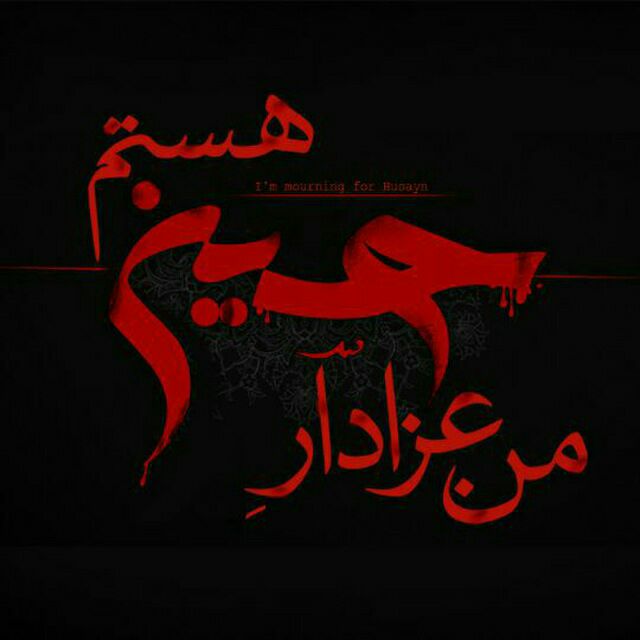
فضیلت زیارت ابا عبد الله الحسین علیه السلام:
حسين (ع) در روز شنبه دهم محرم سال شصت و يك از هجرت پس از نماز ظهر شهيد گشت در حالى كه مظلوم و تشنه كام و شكيبا بود و براى پاداش جوئى از خدا اقدام به چنين كارى كرد.عمر شريفش در آن روز پنجاه و هشت سال بود كه هفت سال آن با جدش رسول خدا (ص) بود، و سى و هفت سال با پدرش على عليه السّلام و چهل و هفت سال با برادرش حسن عليه السّلام و دوران خلافت او پس از برادرش يازده سال بود، و آن حضرت با حنا و رنگ محاسن خود را خضاب ميكرد، و روزى كه بشهادت رسيد خضاب از دو گونه اش جدا شده بود (يعنى در اثر طولانى شدن زمان خضاب مقدارى از بن موهاى حضرت سفيد بود).
و روايات بسيارى در فضيلت زيارت آن حضرت عليه السّلام بلكه واجب بودن آن رسيده است.
1- از آن جمله از امام صادق عليه السّلام حديث شده كه فرمود: زيارت حسين بن على عليهما السّلام واجب است بر هر كه اقرار بامامت حسين عليه السّلام از جانب خداى عز و جل دارد.
2- و نيز آن حضرت عليه السّلام فرمود: زيارت حسين عليه السّلام برابر است با صد حج مبرور (يعنى پاكيزه از گناهان و آلودگيها) و صد عمره پذيرفته شده.
منبع: الإرشاد للمفيد / ترجمه رسولى محلاتى، ج2، ص: 137
Karbala: The True Hajj
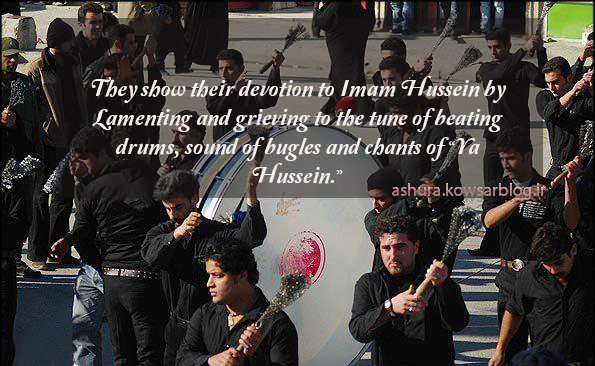
We learn from Imam Hussein that there was a more important goal for him to accomplish than completing the rituals of Hajj and risking bloodshed in the Haram. Actually, it would be an erroneous statement to say that the Imam skipped or cancelled his Hajj that year! In fact, Imam Hussein abandoned the ritualistic Hajj to perform the true essence of Hajj, which is embodied in his sacrifice and bloodshed on the plains of Karbala! Quite frankly, many of the ritualistic acts of Hajj symbolize the tragedy of Karbala, most notably the slaughter on xthe day of Eid al-Adha. Even though we celebrate that day out of gratitude that Allah spared the grief of father and son – Prophets Ibrahim and Isma’il (peace be upon them) – from the slaughter ordered by Him, our moment of joy doesn’t last long because it is soon replaced by the Great Slaughter (Dhibh ‘Adheem, as mentioned in 37:104-108 of the Qur’an) which is personified in Hussein ibn Ali. The grief we feel is further intensified as we remember the pain of separation between Imam Hussein and his son Ali Akbar, which was not spared like that of Isma’il and his father. The 10th of Dhil-Hijjah is only a few weeks away from the 10th of Muharram, reminding us of the true sacrifice that was offered in Karbala one month later!
Karbala: The True Hajj
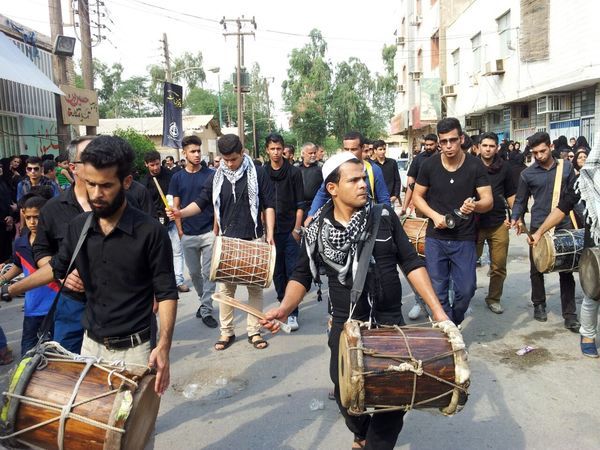
It is important to note that a pilgrim who performs Hajj without recognizing Karbala to be its true essence does not gain the real fruits of his/her pilgrimage.
In the words of Dr. Ali Shariati: “Imam Hussein did not complete his Hajj in order to teach the pilgrims that if there is no Imamate and there is not true leadership, if there is no goal, if ‘Hussein’ is not there and ‘Yazid’ is there, making Tawaaf around the house of Allah is equal to making Tawaaf around the idol-house.” (Hajj)
love and affection Prophet
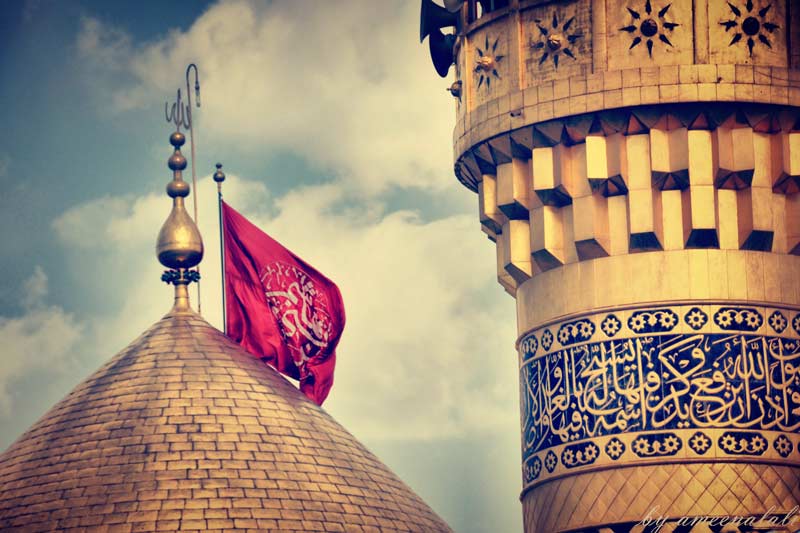
Hussein (A.S) spent his childhood with Lady Fatimah (S.A), Imam Ali (A.S), and especially with Prophet Muhammad (PBUH). The love and affection Prophet Muhammad (PBUH) had towards Hussein (A.S) was so unique that all the companions were aware of it, had frequently seen its manifestation, and had heard of it repeatedly. Moreover, historians have recorded incidents and narrations in this respect. In one account it has been said that the Prophet’s prostration took longer than usual in his prayer. People came to the Prophet and asked, “Were you receiving a revelation or order from Allah during prostration?” Prophet Muhammad (PBUH) replied, “No, my son Hussein had climbed onto my back; I waited until he wished to come down.” This is an example showing how the best creature of Allah (S.W.T) treated Hussein (A.S) while he was in the best state of worship.
Laughing Eyes
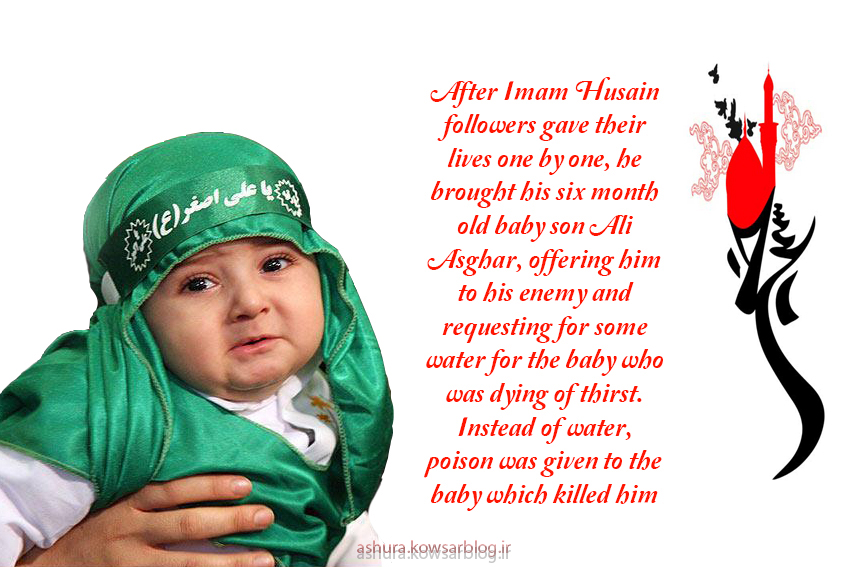
The Holy Prophet (S) said:
قال النبيُّ (ص):
يا فاطمة كلُّ عينٍ باكية يوم القيامة إلاَّ عينٌ بكَت على مُصاب الحُسين (ع) فإنها ضاحِكة مُستبشرة بنعيم الجنة
O’ Fatimah! Every eye shall be weeping on the Day of Judgment except the eye which has shed tears over the tragedy of Husayn (A.S.) for surely, that eye shall be laughing and shall be given the glad tidings of the bounties and comforts of Paradise.
Bihar al‑Anwar, vol. 44 pg. 193.
Muharram ,The Month of Mourning
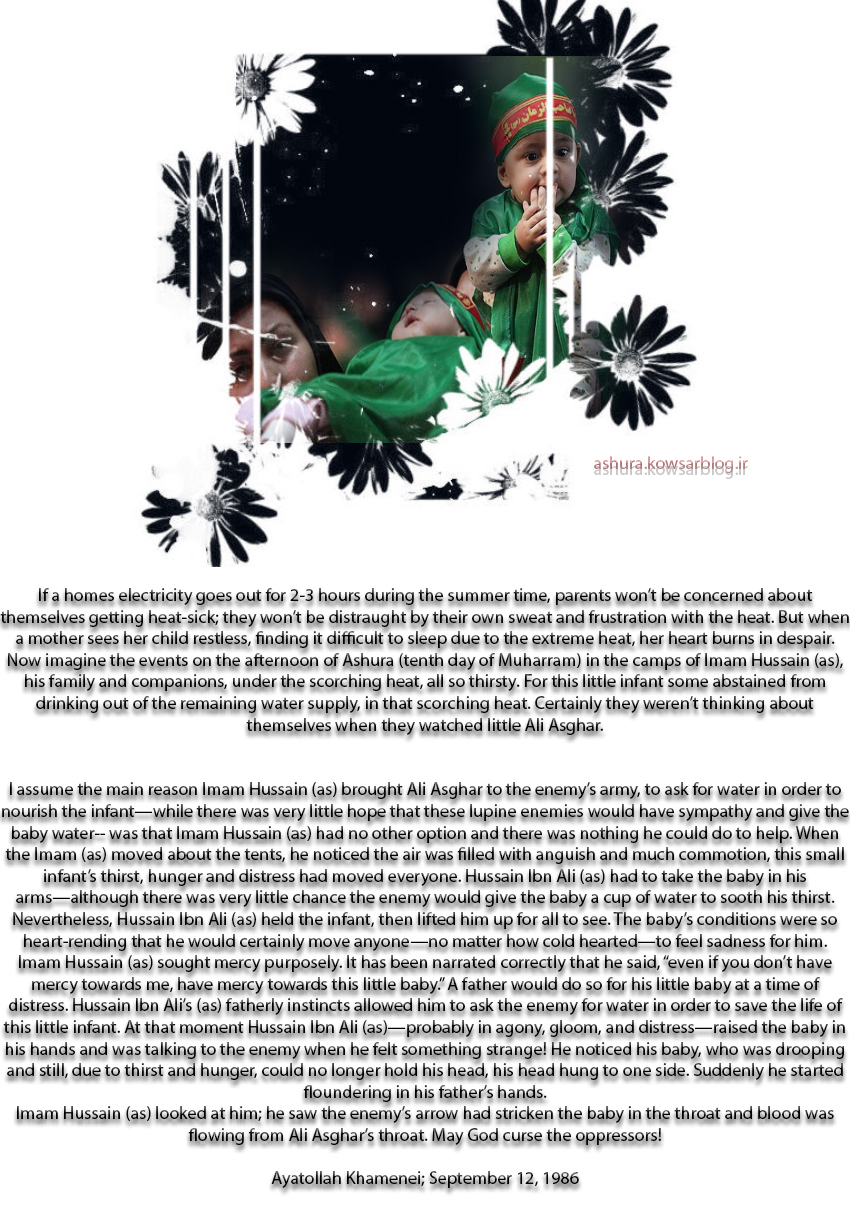
Muharram ,The Month of Mourning
Imam Ridha’ (A.S.) said:
قال الرضا (ع):
كان أبي (ع) إذا دخل شهر المُحرَّم لا يُرى ضاحِكاً وكانت الكابة تغلب عليه حتَّى تمضي عشرة أيَّام فإذا كان يوم العاشر كان ذلك يوم مصيبَته وحُزنه وبُكائه
With the advent of the month of Muharram, my father Imam Kadhim (A.S.) would never be seen laughing; gloom and sadness would overcome him for (the first) ten days of the month; and when the tenth day of the month would dawn, it would be a day of tragedy, grief and weeping for him.
Almsgiving Imam Hussein
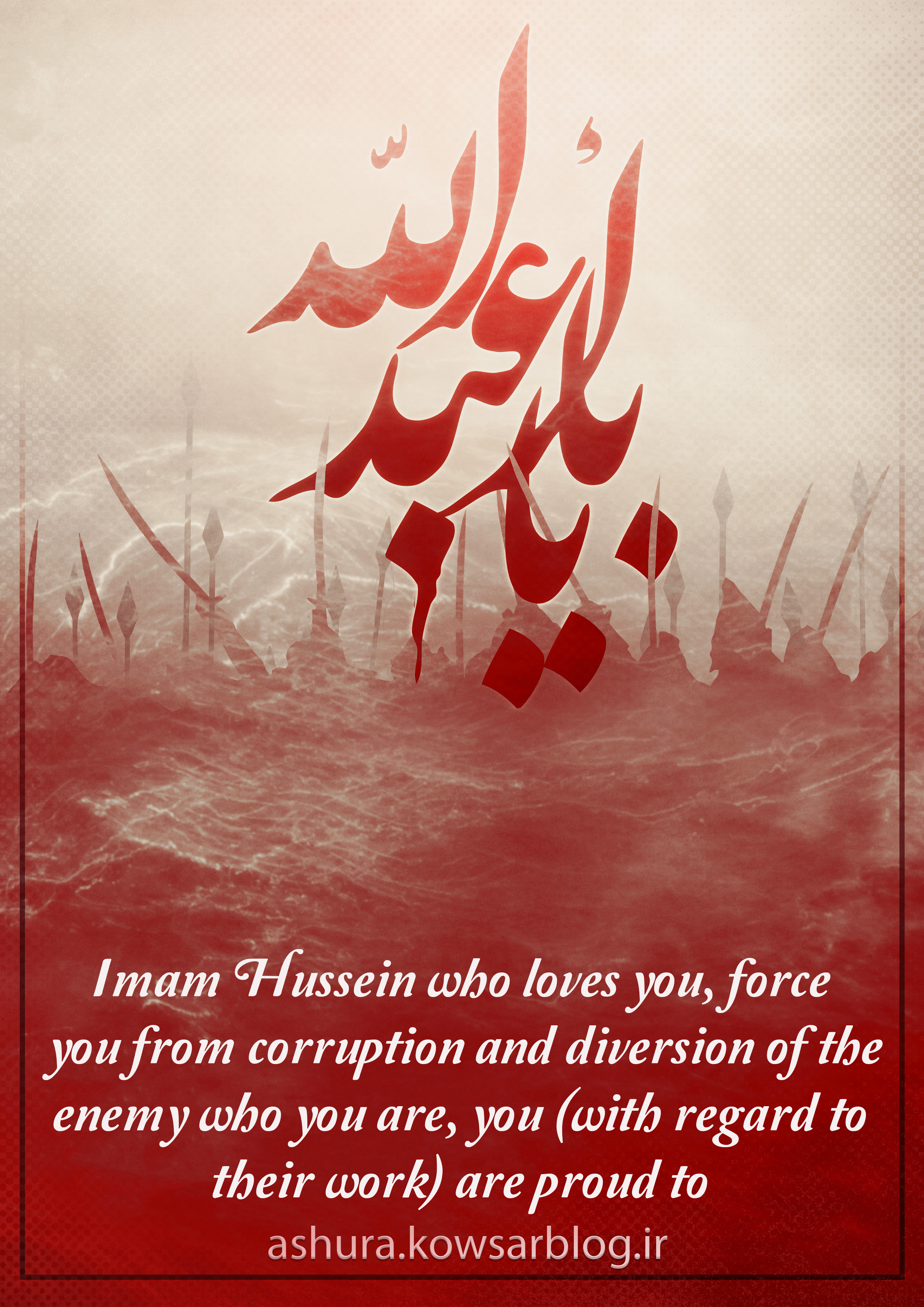
Almsgiving
Imam Hussain (a.s.) went to visit Usamat Ibn Ziyad who was sick and told Imam Hussain (a.s.), “Woe! I am sad!” Imam Hussain (a.s.) told him, “Why are you sad my brother?” Usamah said, “O son of Messenger of Allah (S)! I am in debt to the tune of sixty thousand dirhams. I am fearful of dying with this debt.” Imam Hussain (a.s.) said, “Do not be sad! I will pay your debt before your demise.” And he did so.
Shu’ayb Ibn Abdur Rahman says, “After Imam Hussain (a.s.) was martyred, a mark was seen on his holy shoulder. Imam Sajjad (a.s.) was asked, ‘What is this sign?’ Imam (a.s.) answered, ‘This mark is for the sac of food my father used to carry on his shoulder to feed the poor, the orphan, and the widowed.’”
It is narrated from Imam Hussain (a.s.), “This speech of Prophet Muhammad (S) that ‘The best deed after Salat (prayer) is joyfulness of the believer’s heart, provided it does not include committing a sin,’ is proved for me. One day I saw a slave who was eating along with a dog. He ate a mouthful then threw a piece for the dog. I asked him the reason. The slave answered, ‘O son of Messenger of Allah! I am very sad. I try to make this dog happy so that Allah will delight me. My master is a Jew from who I want to separate.’
Imam Hussain (a.s.) went to the slave’s master and paid two hundred dirhams to buy the slave. The Jewish man said, ‘I grant this slave to you. I grant a farm to him and pay you back your money.’ Imam Hussain (a.s.) said, ‘I accept your granting, grant all of it to the slave and free him.’ The Jewish man’s wife who witnessed all these events said, ‘I embrace Islam and forgive my dowry to my husband.’ The Jewish man said, ‘I embrace Islam too and grant my house to my wife.’”